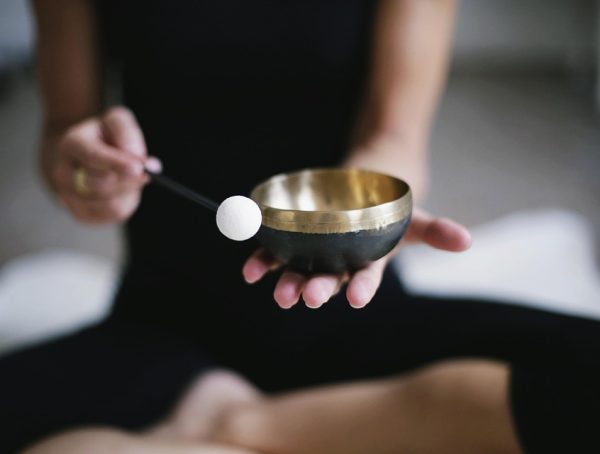How Guided Meditation Can Help with Anxiety
In our fast-paced world, anxiety has become an all-too-common companion for many individuals. The constant demands of work, family, and societal pressures can create a whirlwind of anxious thoughts and feelings, leaving us feeling overwhelmed. However, one powerful tool that has emerged to help combat anxiety is guided meditation. This ancient practice offers a pathway to tranquility and mindfulness, allowing individuals to reconnect with their inner selves and find peace amidst the chaos.
Understanding Guided Meditation
Guided meditation is a technique where a narrator or teacher leads you through a meditation session. This can include visualizations, breathing exercises, and calming narratives designed to calm the mind and reduce stress. Unlike traditional meditation, which can sometimes feel daunting for beginners, guided meditation provides a supportive framework that can make meditation more accessible and effective.
Incorporating guided meditation into your daily routine can yield profound benefits for anxiety management, ranging from lowering stress levels to enhancing emotional well-being. Here are some ways guided meditation can help with anxiety:
1. Promotes Relaxation
One of the most immediate benefits of guided meditation is its ability to promote relaxation. When we engage in this form of meditation, we lower our heart rates and blood pressure, countering the physiological effects of anxiety. The gentle instructions from a guide can help shift our focus away from racing thoughts and into a state of relaxation, encouraging the release of tension in both the body and the mind.
2. Enhances Mindfulness
Anxiety often arises from worries about the future or ruminations about the past. Guided meditation cultivates mindfulness, encouraging individuals to be present in the moment. By focusing on the here and now—whether through breath awareness or visualizations—we learn to detach from negative thought patterns. This newfound awareness can help individuals manage their anxiety more effectively.
3. Develops Healthy Coping Mechanisms
Regular practice of guided meditation can teach individuals to respond to anxiety triggers with calmness rather than panic. Through repeating the techniques learned in guided sessions, individuals can develop a repertoire of coping mechanisms that promote resilience. For instance, learning to visualize a peaceful landscape can serve as a mental escape during stressful moments, enabling a quicker return to a state of calm.
4. Reduces Negative Thought Patterns
Guided meditation often involves affirmations and positive guidance, which can help alter negative thought patterns. By learning to challenge our internal dialogue and reframe anxious thoughts, we can begin to change the way we perceive and react to stressors. The reinforcement of positive affirmations during meditation helps build self-esteem and fosters a more optimistic outlook.
5. Facilitates Emotional Release
Anxiety is often accompanied by pent-up emotions. Guided meditation encourages individuals to explore their feelings in a safe and structured manner. This exploration can lead to emotional release, providing a greater understanding of the root causes of anxiety. Acknowledging and accepting these emotions can promote healing and reduce the anxiety response.
Action Steps to Get Started with Guided Meditation
If you’re interested in using guided meditation to manage anxiety, here are some practical steps to help you begin:
Step 1: Choose Your Medium
Guided meditations are available through various platforms, including apps, YouTube channels, and podcasts. Find a medium that resonates with you. Popular apps like Headspace or Calm offer a wide variety of guided sessions tailored for anxiety relief.
Step 2: Set a Dedicated Space and Time
Choose a quiet, comfortable space where you can engage in meditation without distractions. Establish a routine by setting aside a specific time each day for your practice. Consistency is key to experiencing the full benefits of meditation.
Step 3: Begin With Short Sessions
If you’re new to meditation, start with short sessions. Aim for 5 to 10 minutes each day, gradually increasing the duration as you become more comfortable. This will help prevent feelings of overwhelm and make the practice more enjoyable.
Step 4: Focus on Your Breath
As you listen to the guided meditation, pay close attention to your breath. Use it as an anchor to bring your focus back when your mind wanders. This breath-focused awareness can help enhance the relaxation response and ground you in the moment.
Step 5: Reflect on Your Experience
After each meditation session, take a few moments to reflect on your experience. How did the meditation make you feel? Were there specific thoughts or emotions that arose? Journaling about your experiences can help you track your progress and further deepen your practice.
Step 6: Be Patient and Kind to Yourself
Meditation is a skill that takes time to develop. Be patient with yourself as you embark on this journey. There will be days when your mind feels restless or distracted; that’s completely normal. Embrace these moments with kindness and return to your practice with an open heart.
Conclusion
Guided meditation offers a powerful means of managing anxiety, promoting relaxation, mindfulness, and emotional well-being. By incorporating this practice into your daily life, you can cultivate a more peaceful state of mind and develop healthier coping mechanisms for dealing with stress. Remember, the journey of a thousand miles begins with a single step, and it’s never too late to begin this healing process.
In the words of the esteemed author John Milton: "The mind is its own place, and in itself can make a heaven of hell, a hell of heaven." Embrace the potential within your mind, and may meditation lead you toward your personal heaven.
For content like this and more, follow Kevin on Instagram at @KSteineman for daily inspiration and guidance on your wellness journey!
You might also like
More from Meditation
The Role of Mantras in Transcendental Meditation: A Deep Dive
The Role of Mantras in Transcendental Meditation: A Deep Dive Transcendental Meditation (TM) has garnered a significant following across the globe, …
The Science Behind Meditation: Improving Mental Health Naturally
The Science Behind Meditation: Improving Mental Health Naturally In today's fast-paced world, the pursuit of mental wellness has become paramount. Thousands …
Understanding the 7 Types of Meditation for Beginners
Understanding the 7 Types of Meditation for Beginners: A Path to Inner Peace Meditation has become a popular practice in recent …


































